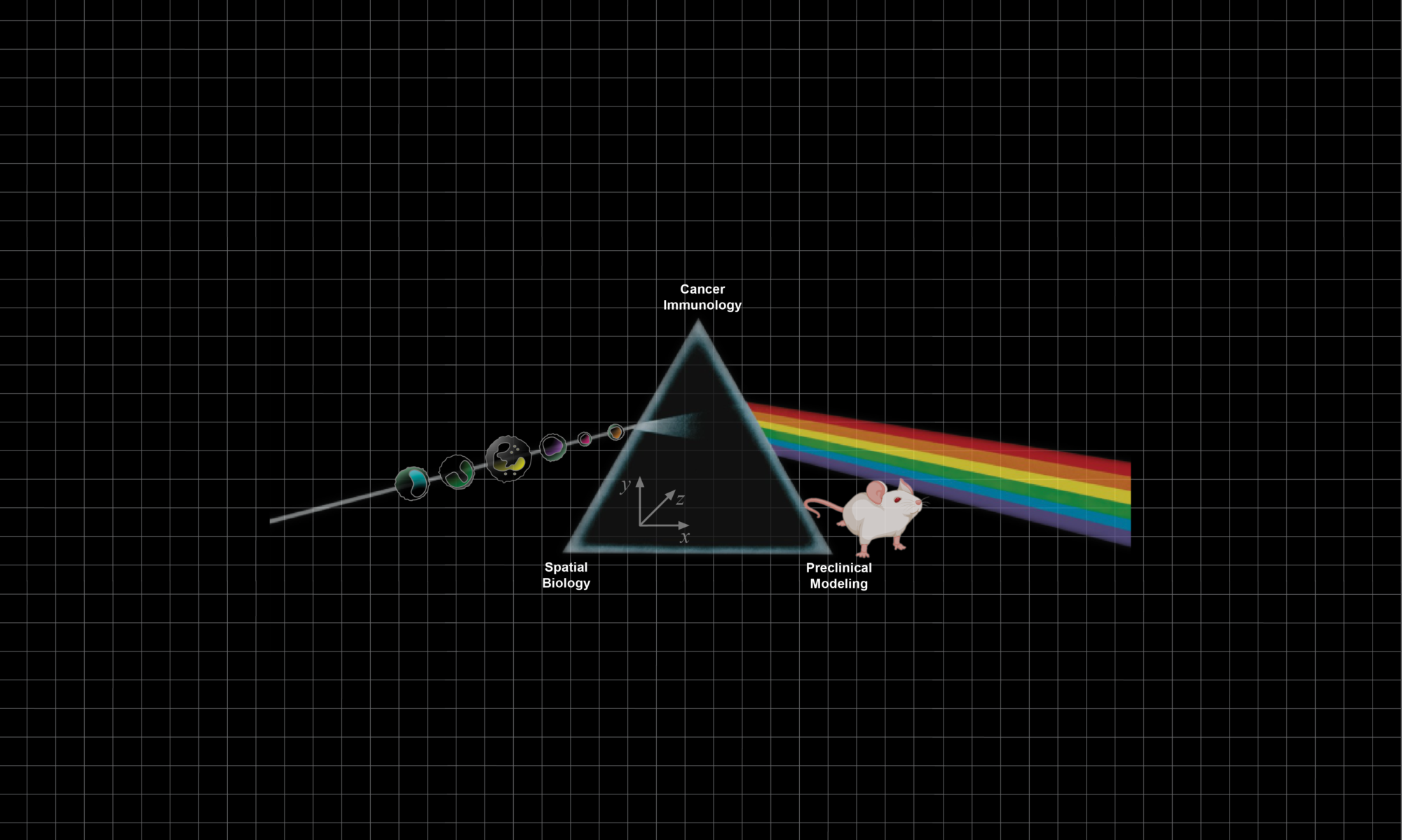Our Approach
Early detection and intervention have the potential to shift the cancer paradigm from treating advanced, often incurable, disease to preventing or eliminating malignancies before they pose life-threatening risk. Prodigious advances in highly multiplex tissue imaging and sophisticated data analysis routines have dramatically improved our ability to diagnosis, monitor, and treat cancer. Our lab is driven by curiosity, innovation, and a commitment to halting cancer in its tracks through early detection and interception. We use advanced techniques in quantitative multiplex tissue imaging and cancer systems immunology to better detect, study, and intercept cancer. Using a set of innovative research tools developed in our lab (our tools), we conduct studies that aim to relate features of tumor microenvironment with overall immune system status to better understand immune responses to cancer. Key focuses of our research is the identification of early cancer biomarkers that signal risk of developing lethal cancer and the development of more precise and effective strategies for targeting earlier disease.
Cancers of Interest
We are currently focused on cancers of the brain, breast, and colon—tumors which present unique challenges and represent critical targets for early detection and intervention. Glioma brain cancers are particularly aggressive, often diagnosed at late stages, and resistant to treatment, making early detection and targeted therapies essential for improving already dismal patient outcomes. Breast and colon cancers have also benefit from early detection and preventive screening measures. Patients with these tumors suffer from healthcare disparities, making biomedical advances that can drive more equitable and effective cancer prevention and treatment highly beneficial.
About the Knight Cancer Institute (KCI)
The Baker Lab is located at the OHSU Knight Cancer Institute in Portland, Oregon. Click the link below to learn about our mission.
Our partners in early detection
click an icon to learn more

The Cancer Early Detection Advanced Research (CEDAR) Center at the OHSU Knight Cancer Institute focuses on developing innovative methods for early cancer detection to improve survival rates. It combines biomedical research, data science, and advanced technology to identify cancer at its earliest stages and ultimately reduce cancer-related deaths.

The International Alliance for Cancer Early Detection (ACED) is an international network of institutions leading research into early cancer detection, of which the OHSU Knight Cancer Institute is a founding partner. The research network works together to tackle complex questions and amplify the impact of early cancer detection research.

The World Health Organization (WHO) promotes early cancer detection by developing screening guidelines, raising awareness, and supporting healthcare systems, especially in low- and middle-income countries. The WHO also collaborates with global health organizations to improve research, policy-making, and infrastructure for cancer screening programs.

The Early Detection Research Network (EDRN) is an National Cancer Institute-sponsored program for the development, evaluation, and validation of biomarkers for early detection and risk assessment for cancer. The network consists of biomarker development and validation laboratories, clinical validation centers, and a data management and coordinating center (DMCC).

